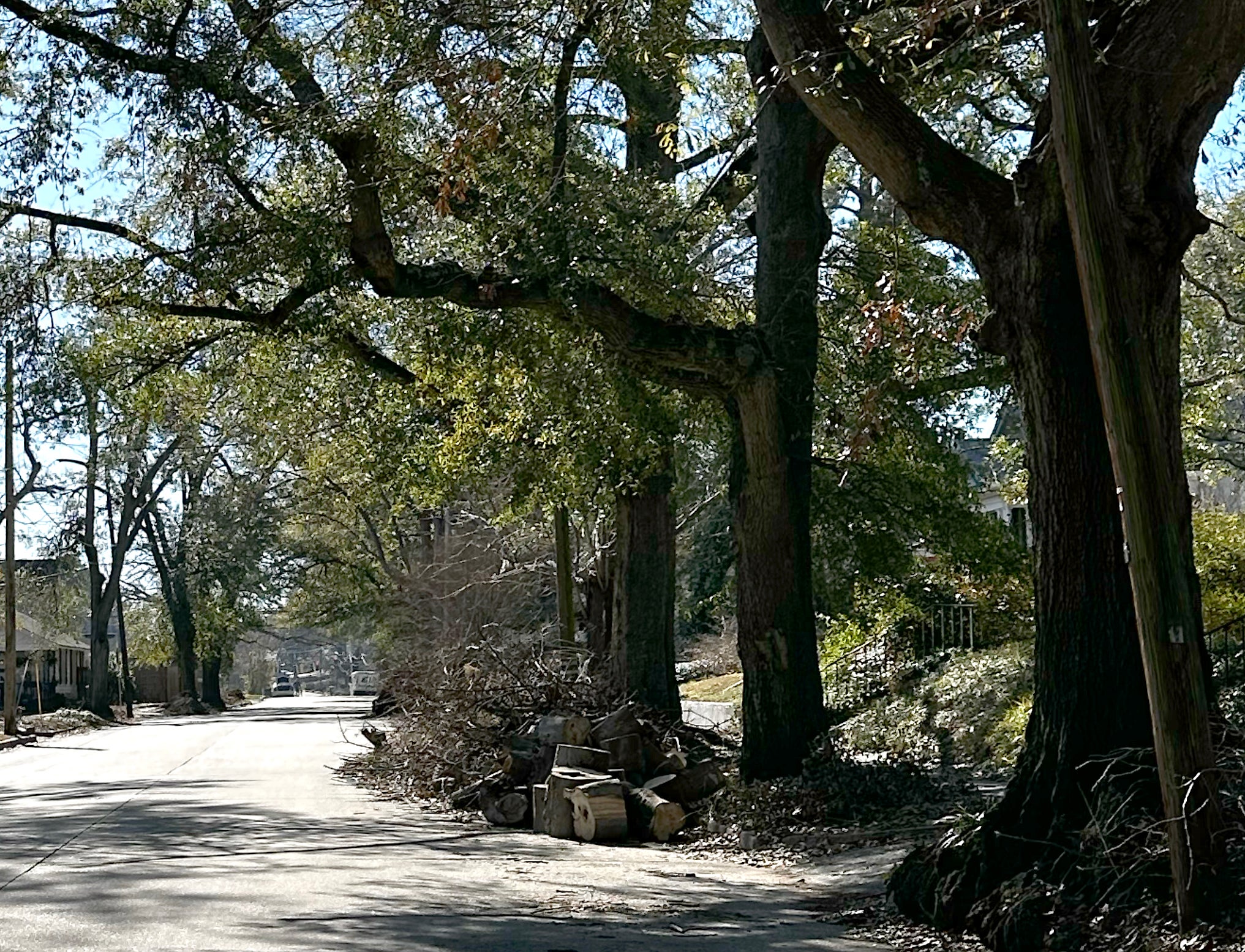While some Augusta neighborhoods have yet to see a first load of hurricane debris removed, the city is asking other residents to prepare for a “final pass” set to begin Monday in certain areas.
Since Oct. 7, debris contractor Ceres has collected about 2.6 million cubic yards of vegetative debris and is “nearing completion” of the initial pass, city officials said in a statement.
But, “we want to emphasize that trucks and resources will continue to complete their first pass in areas that have not had an initial pass completed,” the city said in a clarifying statement Friday.
Those who haven’t had a first pass should call 311.
The final pass
For areas that have had a first pass, the “final pass” is a phase in which the contractor moves street-by-street, removing allowed remaining debris, then signing off on the work.
“Upon the completion of the final pass on a street, the supervisor will certify the work as complete,” the city said.
The final pass does not include root balls or stumps, which will be the last items collected. Collection of construction debris has not started.
Collection by voting precinct
Haulers are now collecting by zones based on voting precincts and next week’s pickup will begin with precincts 102, 104, 106, 109, 112, 702, 703, 706, 707 and 709.
To find out your voting precinct number, you can look it up on the city’s debris removal heat map. The map shows a breakdown of pickups along city streets by day and precinct.
How to prepare
To prepare for the final pass, residents should place the remainder of their debris in the right-of-way and follow these guidelines:
- Vegetative debris ONLY:
- DO NOT mix debris with household garbage, construction materials or furniture. Mixed piles will not be collected.
- Information about construction debris collection will be provided at a later date.
- Stumps and large root balls are collected separately from general debris.
- Leaves, pinestraw and small branches may remain after the final pass. Residents are encouraged to bag these materials for normal yard waste collection.
- Consolidate smaller piles:
- Combine small debris piles into larger ones for efficient removal.
- FEMA regulations require piles to be larger than a typical trash can for pickup.
- Any new debris after the final pass will not be collected. Residents should utilize regular waste disposal services for any additional debris.









